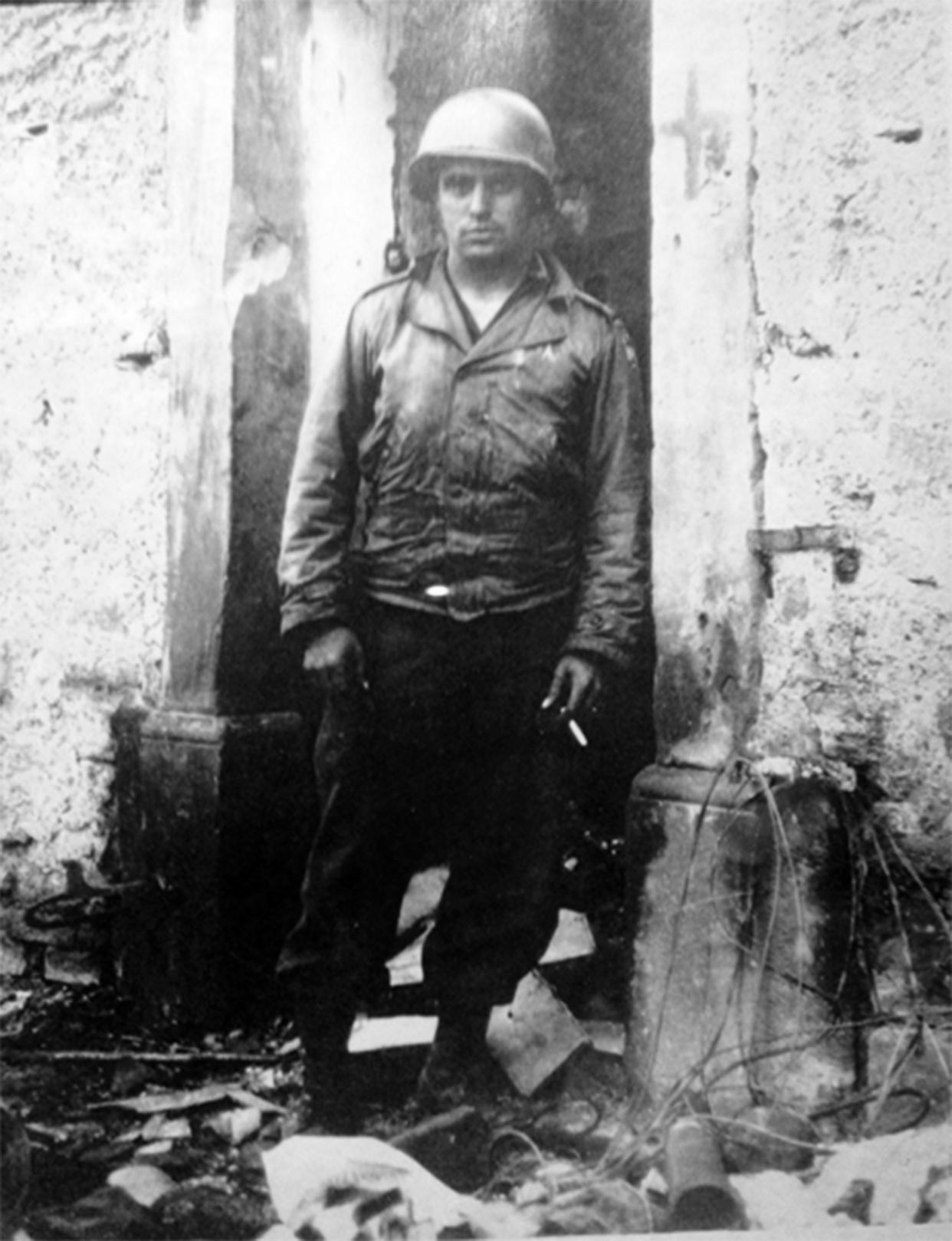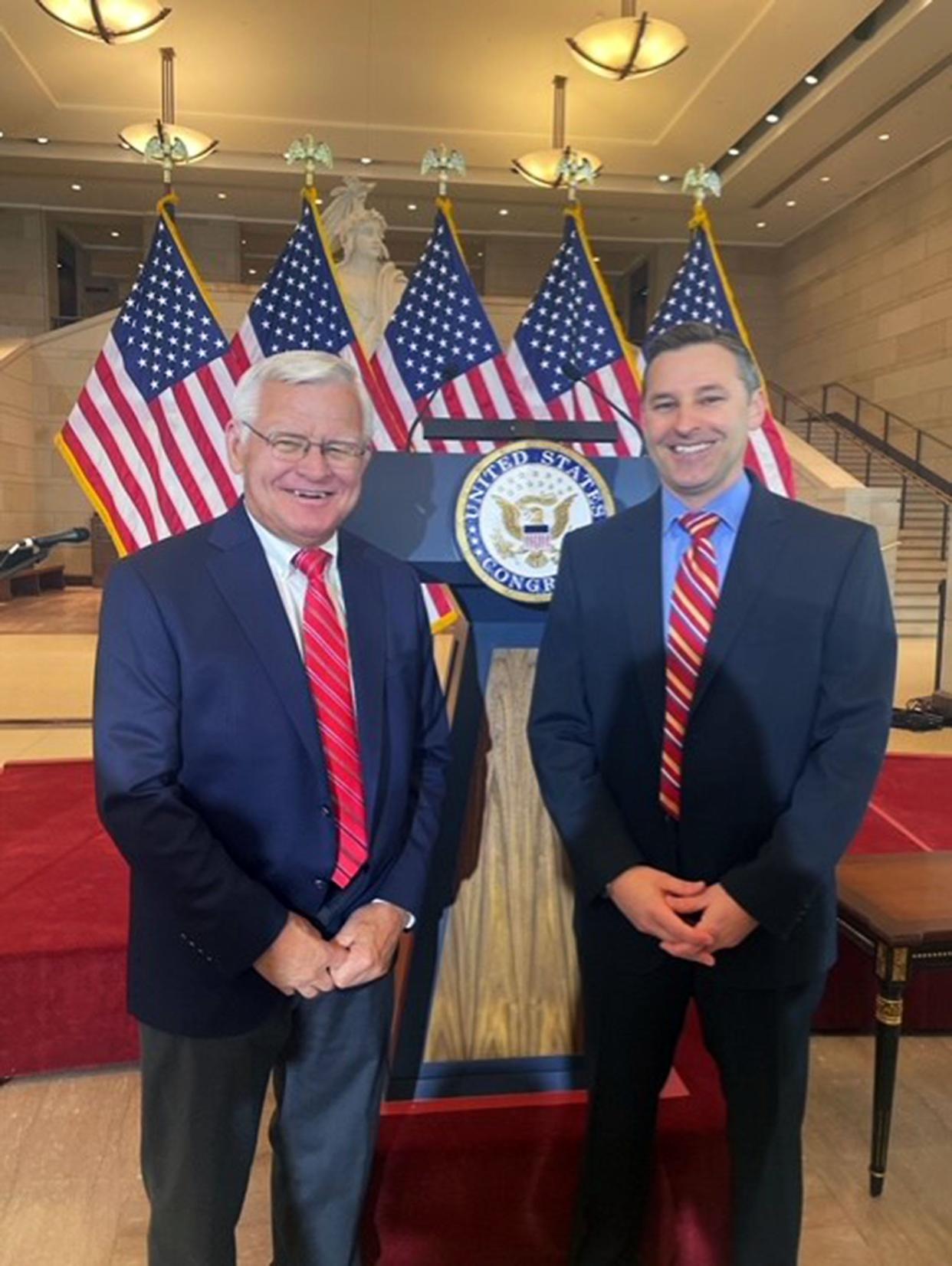These U.S. Army units that used diversionary tactics in WWII were honored by Congress
Inflatable tanks, fake radio traffic, loudspeakers playing the sounds of trucks, fake uniforms and camouflage were tactics used in World War II to confuse Nazi Germany axis forces.
Among those who employed these diversionary strategies was John J. Williams with the 23rd Headquarters Special Troops, which, along with the 3133rd Signal Service Company, was known as the Ghost Army.

Williams was posthumously honored March 21 in Washington, D.C., during a Congressional Gold Medal ceremony at the U.S. Capitol that honored all 82 officers and 1,023 enlisted soldiers in the Ghost Army. His son, John S. Williams, and grandson Michael Williams attended the ceremony.
While only a complement of roughly 1,100, their actions made Nazi Germany think they were a 20,000-strong unit, Michael Williams wrote in a message to the Tribune.
Born in Adair County in 1921, John J. Williams, lived in Columbia from 1958 until his death in 2010. The Ghost Army counted artists, architects, a Life Magazine photographer and clothing designer Bill Blass, a brand that continues to make sneakers for women and tote bags, among its troops, Michael Williams wrote.
"My Grandpa served as a radio man who produced fake radio traffic. To achieve their goal, for better or worse, they had to be at or near the front lines," he wrote.
This included Omaha Beach on D-Day, at the battle of Normandy, in Paris, when surrounded at Bastogne, Belgium, with the 101st Airborne, the Battle of the Bulge and helping the Ninth Army safely cross the Rhine River into Germany, he added.
The Ghost Army was declassified in 1996.
"That’s when the public first learned of the creative, daring techniques the Ghost Army employed to fool and distract the enemy about the strength and location of American troops," Michael Williams wrote.
His grandfather, as part of the 23rd Headquarters Special Troops, participated in the more than 20 deception operations across France, Belgium, Luxembourg, and Germany.
By fooling Nazi Germany, it is estimated their work saved 15,000 to 30,000 American lives, Michael Williams noted.
"U.S. Army analyst Mark Kronman stated, 'Rarely, if ever, has there been a group of such a few men which had so great an influence on the outcome of a major military campaign,'" he wrote. The 3133rd Signal Company Special carried out two deceptions in Italy in 1945, he added.

The ceremony last week was hosted by House Speaker Mike Johnson, who was joined by other House and Senate leaders, sponsors of the award legislation that passed in 2022, U.S. military Joint Chiefs of Staff and Secretary of the Army Christine E. Wormuth. The Congressional Gold Medal is its highest expression of national appreciation for distinguished achievements by individuals or institutions, Michael Williams noted.
Three of seven surviving members of the Ghost Army, now all 100 years old, attended the ceremony, he added.
Ghost Army members still living are:
James “Tom” Anderson, Dover, Delware.
Bernard Bluestein, Hoffman Estates, Illinois.
John Christman, Leesburg, New Jersey.
George Dramis, Raleigh, North Carolina.
William Nall, Dunellon, Florida.
Seymour Nussenbaum, Monroe Township, New Jersey.
John Smith, Woodland, Michigan.
The honor was part of a 20-year effort by the Ghost Army Legacy Project to gain recognition of these WWII veterans, Michael Williams wrote.
"Rick Beyer, a historian, author and President of the Ghost Army Legacy Project, lead the grassroots campaign to get Congress to pass the bill awarding this group of brave men the Congressional Gold Medal," he wrote. "Many people helped to get this across the finish line. I made a few phone calls and emails myself to our senators and (members of Congress) over the past 6 years."
The effort proved ultimately rewarding, Michael Williams noted, quoting Beyer.
"The story of the Ghost Army is one of courage, creativity, reliance, and honor, and I am proud to have been a part of this effort, along with so many others, to earn the credit and gratitude from the country these soldiers served to protect," Beyer said.
Bipartisan sponsors of the bill that led to the medal ceremony March 21 were Rep. Annie Kuster, D-New Hampshire, Rep. Chris Stewart, R-Utah, and Senators Edward Markey, D-Massachusetts, and Susan Collins, R-Maine, Michael Williams wrote.
Charles Dunlap covers local government, community stories and other general subjects for the Tribune. You can reach him at cdunlap@columbiatribune.com or @CD_CDT on Twitter. Subscribe to support vital local journalism.
This article originally appeared on Columbia Daily Tribune: Columbia veteran honored posthumously as part of WWII Ghost Army
